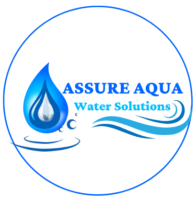The 7 Importance Of Clean Water
Clean water is one of the most essential components for sustaining life, promoting health, and ensuring social and economic development. Despite covering 71% of the Earth, water remains a limited resource in its clean, drinkable form. With the rapid growth of the global population, industrialization, and climate change, access to clean water is becoming increasingly critical. This blog explores the significance of clean water and why ensuring universal access is a top global priority.
1. Health Benefits of Clean Water
Clean water is vital for human health. It helps in preventing waterborne diseases such as cholera, typhoid, dysentery, and hepatitis A. According to the World Health Organization (WHO), contaminated drinking water is responsible for over half a million deaths each year.
- Disease Prevention: Clean water prevents the spread of infectious diseases. Child Health: Infants and children are particularly vulnerable to illnesses caused by unsafe drinking water. Hygiene and Sanitation: Clean water supports personal hygiene and sanitation practices, reducing the risk of disease transmission.
- Child Health: Infants and children are particularly vulnerable to illnesses caused by unsafe drinking water.
- Hygiene and Sanitation: Clean water supports personal hygiene and sanitation practices, reducing the risk of disease transmission.
2. Clean Water and Nutrition
Water plays a crucial role in food digestion and nutrient absorption. In agriculture, clean water ensures safe irrigation of crops and healthy livestock, leading to better food quality and safety.
- Agricultural Productivity: Access to uncontaminated water improves crop yields and ensures food security.
- Nutrition: Safe drinking water enhances the body’s ability to absorb essential nutrients.
- Infant Development: Clean water is essential for preparing safe baby food and formula.
3. Economic and Social Impact
Communities with access to clean water experience better economic outcomes. Women and children often bear the burden of fetching water, which limits their ability to work or attend school.
- Time Savings: Access to nearby clean water saves hours each day, especially for women and girls.
- Education: Children, particularly girls, are more likely to attend school regularly when clean water is available.
- Economic Growth: Healthy populations contribute more effectively to the workforce and economy.
4. Environmental Sustainability
Sustainable water management supports ecosystems and helps maintain biodiversity. Clean rivers, lakes, and wetlands are crucial for wildlife and ecological balance.
- Preserving Ecosystems: Clean water bodies support aquatic life and biodiversity.
- Climate Resilience: Proper water management reduces the impact of climate change and natural disasters.
- Pollution Control: Reducing water pollution preserves natural habitats and reduces clean-up costs.
5. Global Water Crisis
More than 2 billion people globally lack access to safely managed drinking water. The crisis is more severe in rural and underdeveloped areas.
- Water Scarcity: Rising demand and shrinking resources are intensifying the water crisis.
- Urban Challenges: Growing cities face infrastructure issues in providing clean water.
- Global Action: Organizations like the UN and NGOs are working to achieve Sustainable Development Goal 6: Clean Water and Sanitation for All.
6. Technological Solutions and Innovations
Advancements in technology are making clean water more accessible. From filtration systems to desalination plants, innovation is key to overcoming water challenges.
- Water Purifiers: Home and industrial purifiers remove contaminants effectively.
- Desalination: Turning seawater into drinking water is becoming more affordable.
- Smart Water Management: IoT and AI technologies help monitor water quality and usage.
7. Role of Individuals and Communities
Every person has a role in conserving water and ensuring it remains clean. Community efforts can make a big difference.
- Awareness Campaigns: Educating people about water conservation and hygiene.
- Rainwater Harvesting: Collecting and storing rainwater reduces dependence on groundwater.
- Proper Waste Disposal: Prevents water contamination in local bodies.
Conclusion
Clean water is not just a necessity; it is a right. Ensuring universal access to safe drinking water can transform communities, improve health, empower education, and boost economies. As global citizens, we must advocate for clean water access, invest in sustainable solutions, and support initiatives that protect this vital resource. The future depends on how wisely we use and protect our water today.
Frequently Asked Questions (FAQs)
Q1: Why is clean water important for health?
A: Clean water is essential for preventing waterborne diseases such as diarrhea, cholera, and typhoid. It supports good hygiene and helps maintain overall health.
Q2: How does clean water affect child development?
A: Children need clean water for proper nutrition, hygiene, and disease prevention. It plays a key role in their physical and cognitive development.
Q3: What are the main sources of clean water?
A: Clean water typically comes from treated municipal supplies, natural springs, purified groundwater, and filtered rainwater.
Q4: What causes water pollution?
A: Water pollution can be caused by industrial waste, sewage discharge, agricultural runoff, and improper disposal of chemicals and plastics.
Q5: How can we conserve clean water at home?
A: Use water-saving fixtures, fix leaks, turn off taps when not in use, collect rainwater, and avoid wasting clean water in daily chores.
Q6: What are water purifiers and how do they help?
A: Water purifiers are devices that remove contaminants from water to make it safe for drinking. They use filtration, UV, or RO technology.
Q7: How does clean water support economic development?
A: Healthy communities are more productive. Access to clean water reduces medical expenses and improves work and school attendance.
Q8: What global efforts are being made to ensure clean water access?
A: The UN’s Sustainable Development Goal 6 aims to ensure availability and sustainable management of water and sanitation for all by 2030.
Q9: Can technology help solve the water crisis?
A: Yes, technologies like smart water monitoring, desalination, and portable filtration systems are making clean water more accessible.
Q10: What can individuals do to support clean water initiatives?
A: Conserve water, reduce plastic use, support NGOs working in water sanitation, and educate others about the importance of clean water.
